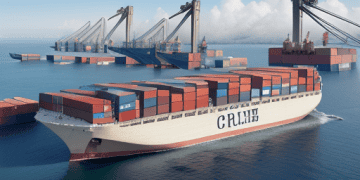Mexico has introduced significant changes to its duty-free apparel import rules, which are expected to have an impact on foreign fashion brands and third-party logistics providers (3PLs) using the country for de minimis shipments to the U.S.
The new regulations, signed into effect by President Claudia Sheinbaum on December 19, 2024, include the imposition of additional tariffs of 15% or 35% on certain apparel categories. Many apparel goods will also no longer qualify for Mexico’s IMMEX program, which previously allowed for duty-free imports of intermediary goods that were then exported for final sale.
These rule changes are set to affect 3PLs managing cross-border shipments, as well as apparel brands that rely on the IMMEX program to streamline their import/export processes. The program allowed brands to import goods to Mexico duty-free and then export them to the U.S. under de minimis provisions, enabling cost savings on tariffs.
The Mexican government has defended the decision, stating that the changes aim to protect the local apparel manufacturing industry. Officials explained that the IMMEX program was intended for intermediary goods that would be used in manufacturing other products for export. However, some companies had been using the program to import finished goods, which Mexico’s economy officials argue puts local manufacturers at a disadvantage.
The implementation of these new rules is expected to prompt apparel brands to seek alternative logistics solutions, including possibly exploring other 3PL options in the U.S. or Canada. The changes are likely to result in shifts in distribution strategies as companies adapt to the revised import/export landscape.
Stay current with supply chain report news at The Supply Chain Report. For international trade resources, visit ADAMftd.com.
#MexicoApparelImports #DutyFreeRestrictions #IMMEXProgram #TariffsOnApparel #CrossBorderLogistics #FashionIndustryImpact #EcommerceChallenges















